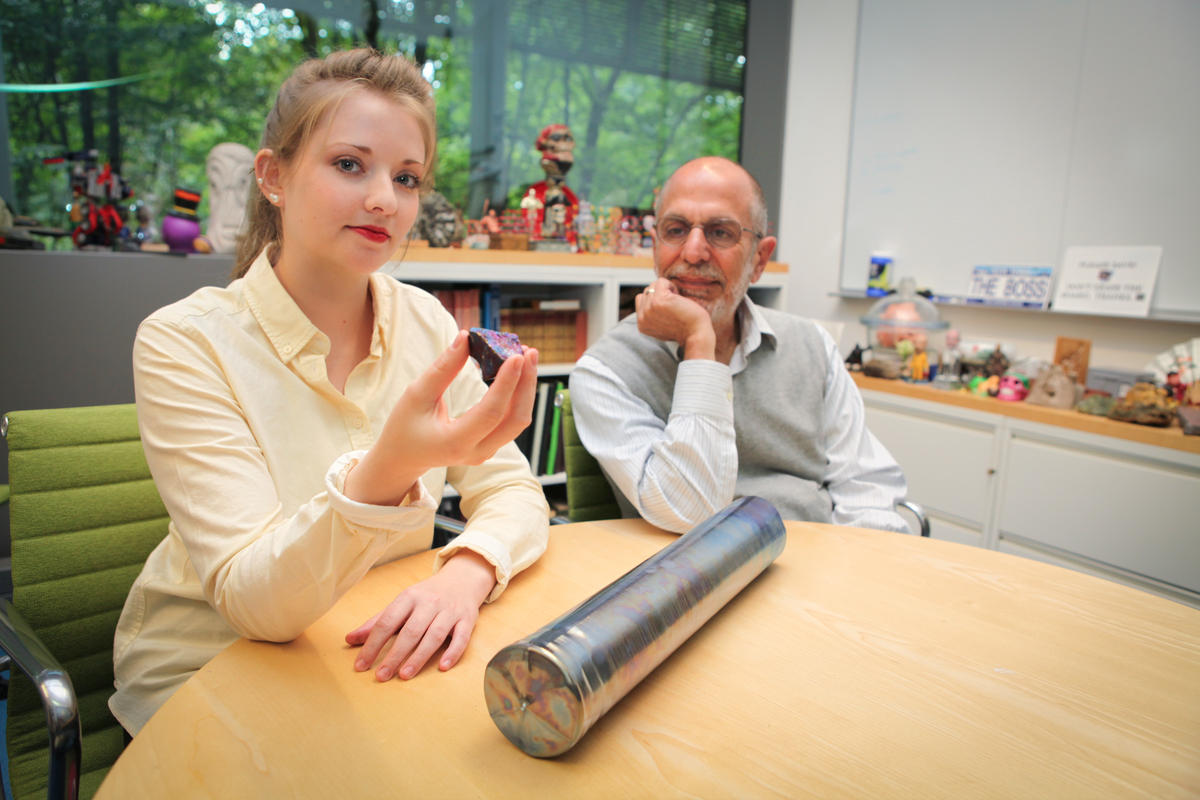Frick Receives Princeton’s First Intl Space Station U.S. Natl Lab Grant
Jessica Frick, graduate student in the labs of Andrew Bocarsly and Robert Cava, has received authorization and funding for an experiment of her design to be performed on the International Space Station (ISS) U.S. National Laboratory. Her proposal, “Microgravity Crystal Growth of Photovoltaic Semiconductor Materials” will investigate gravity as a crystal growth variable. The proposal was submitted with support from Robert Cava, the Russell Wellman Moore Professor of Chemistry.

Earth’s gravity influences the distribution of elements in the liquid phase which, in turn, dictates the resulting atom location in the solid crystal lattice. Alleviating gravitational influences by growing crystals in space is anticipated to produce semiconductors with ideal crystalline quality for photovoltaic applications.
Frick, an NSF graduate research fellow, received news on September 18 of the ISS National Lab award, Princeton’s first-ever grant of this kind.
Frick will work with Space Tango, an ISS Implementation Partner with manufacturing expertise of space-environment research equipment, to build the experimental platform for testing crystal growth on board the ISS. The experiment payload is expected to be launched in 2019 from either NASA’s Kennedy Space Center (FL) or NASA’s Wallops Flight Facility (VA).
